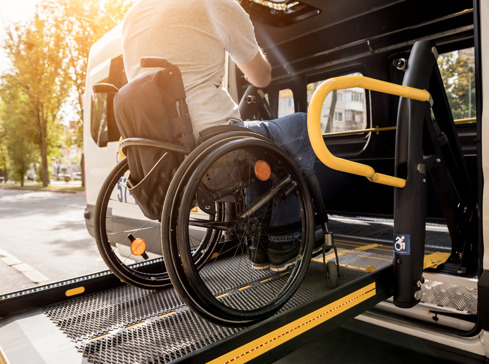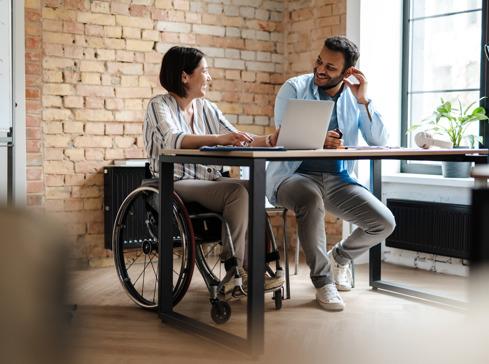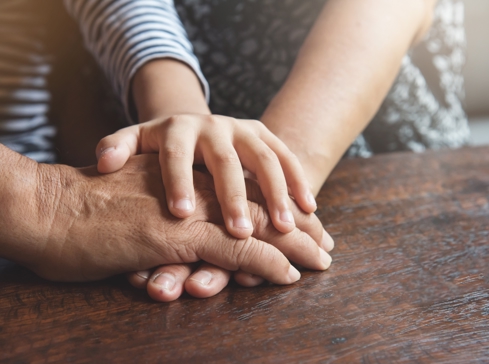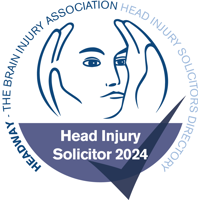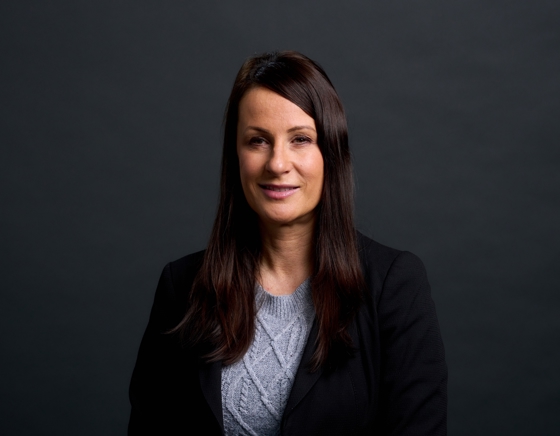Spinal Injury Compensation Claims
Guiding you through all aspects of spinal injury
Every year, 2,500 people will have a spinal cord injury. Spinal cord injury can affect anyone, at any time.
A spinal cord injury can be suffered in an workplace or road accident or sometimes as a result of a sporting injury. No matter how you sustained your spinal cord injury, your life is changed and that of those around you.
Around 50,000 people in the UK live with spinal cord injury. Many spinal cord injuries are suffered in road traffic accidents or a fall from a height. You therefore may have a legal claim for compensation for your spinal cord injury.
It is important to choose a lawyer who has proven experience of helping other people with a spinal cord injury, as they need to understand the unique challenges for someone living with a spinal cord injury.
At Higgs LLP we do, and work as a Trusted Partner of the Spinal Injuries Association, supporting their members. For our spinal injury clients, we prioritise your early rehabilitation needs and help with securing early interim payments wherever possible. We also have an in-house client support manager who can help support you with a wide range of social needs. We also offer ‘no win no fee’ agreements to fund your claim, which means that there is no financial risk to you if you lose.
Start your spinal injury claim
What is a spinal cord injury?
The spinal cord is the collection of nerves in the spine which connects the brain to the rest of the body. These nerves carry the signals which control essential functions such as the beating of our heart and breathing, as well as our senses and the muscles which control not only how we move, but also use of our bladder and bowels.
The spinal cord is protected from injury inside the bones of our spine, the vertebrae. It is possible to fracture a vertebra without impacting on the spinal cord however, a serious fracture will often also cause damage to the spinal cord. In a medical scenario, people sometimes suffer a compression of the spinal cord which needs to be operated on urgently to prevent a permanent spinal cord injury.
Causes of spinal injury
The most common causes of spinal injury are serious falls, road traffic incidents and assaults. They can also be suffered as a sports injury, such as playing rugby or horse riding.
What are the types of spinal injury?
Spinal cord injury has two main categories, tetraplegia which is also known as quadriplegia, where the spinal cord injury affects all the arms and legs. If only the legs are affected, this is called paraplegia.
The impact on the limbs may be complete, where there is no use of the muscles or any voluntary movement; or it can be incomplete, where someone may still have some sensation or movement.
If a person has muscle weakness in only the legs, this is called paraparesis. When the arms are also affected, this is then called tetraparesis.
What determines the effect of the spinal cord injury, is not only the extent of the damage to the spinal cord, but also where the damage is on the spinal cord. The higher up the spine, then the greater the extent of the injury. This is because the nerves which link to the brain branch off all the way down the spine, so if the spinal cord injury is low down in the back, all the functions served by the nerves above the damage will still be able to work normally.
What are the effects of spinal injury?
Tetraplegia
Tetraplegia, which is a complete loss of function and sensation in the arms, body and legs, typically happens when there has been a severe injury to the neck.
Symptoms can include:
- Complete paralysis of arms, body and legs
- Inability to breath without assistance
- Loss of bower and bladder function
- Inability to transfer independently
When the damage to the spinal cord is lower down the neck, there may be some limited use of limbs.
There are several secondary symptoms following tetraplegia:
- Deep vein thrombosis
- Fertility problems
- Frozen joints
- Pressure sores
- Pneumonia
- Spasticity
- High blood pressure
Initial treatment will be in a specialist spinal hospital, such as at Oswestry, for up to 12 months. Afterwards you will need an extensive care regime, with an emphasis on avoiding secondary symptoms is required, for example regularly moving the patient to prevent pressure sores from occurring.
Paraplegia
Paraplegia is the complete damage to the spinal cord below the neck and typically occurs when the spine in the upper back or below is damaged. This causes complete loss of movement and feeling in the legs, whereas the arms and hands can still be normal.
Injury to the spine in the upper back causes a complete loss of function and sensation below the mid-chest, meaning you have little or no trunk control and have poor balance when sitting. Bladder and bowel functions may also no longer work properly.
Damage in the mid-spine area causes a loss of function and sensation in the legs, although there is good balance when sitting along with some general movement of the trunk.
There are also a number a secondary effects following paraplegia including:
- Chronic nerve pain
- Deep vein thrombosis
- Fertility problems
- High blood pressure
- Osteoporosis
- Pressure sores
- Spasticity
Initial treatment is in a specialist spinal hospital for up to five months when extensive rehabilitation is given to help the patient adapt to their injury. After leaving hospital, someone with complete paraplegia can usually achieve a level of self-care using a self-propelled wheelchair. In some cases, walking a short distance is possible with aids and equipment.
Incomplete spinal cord injury
Incomplete spinal cord injuries mean that the spinal cord remains intact, and some limited mobility or sensation can remain. If spinal shock has occurred, immediate symptoms including paralysis may improve, with some movement and sensation returning in time. Incomplete spinal cord injuries are typically classified into the following categories:
Anterior cord syndrome
This is when an impact damages the artery that runs along the front of the spinal cord, perhaps by a fragment of broken bone or a slipped disc. This can lead to a loss of feeling of temperature and vibration.
Central cord syndrome
This is an injury to the nerves at the centre of the spinal cord preventing the brain sending information down the spinal cord to the rest of the body. Damage to the central cord can impact on arm function, bladder and bowel control.
Posterior cord syndrome
This is an injury to the back of the spinal cord which often means that a person can continue to move, but lacks limb control and coordination.
Brown-sequard syndrome
When an injury occurs to one side of the spinal cord, it can often lead to a complete loss of movement on one side of the body, but with preserved sensations of pain and temperature.
Cauda equina syndrome
The cauda equina is a group of nerves in the lower back area, shaped like a horse’s tail. If there is an injury in this area, swelling can cause the nerves to become compressed often causing severe lower back pain. If not treated with emergency surgery to relieve the compression, it can cause permanent bladder and bowel dysfunction.
Common symptoms of spinal injury
At the most extreme level, someone with a spinal cord injury in the neck may need a ventilator to breathe, or if they are able to breathe independently may still depend on help from others for the rest of their needs. If the spinal cord injury is lower down the spine, then someone may have use of their shoulders or arms, but still lack control of their upper body. And even lower down, there may be full use of the upper body and in some cases even some use of the legs.
Other symptoms include muscles spams and jerking, which can affect sleep and make normal activities of daily living or moving from a chair or bed difficult. There can also be pain symptoms, that need to be managed with medication or physiotherapy.
A significant symptom for many people with spinal cord injury is managing their bowels. They can experience incontinence or constipation, or lack total control and need a stoma, which is a surgical hole in the abdomen, so that the body waste can collect into a bag. Others may also need a catheter fitted, which is a tube in the urethra to drain urine from the bladder into a bag. This can increase the risk of infections.
There can also be a loss of sexual function for men and women.
If someone has to spend a prolonged period sitting or lying in a bed, when they cannot easily move, they are at risk of developing pressure sores. This is when the pressure of being in one position reduces the blood supply. It can lead to the skin dying and creating an open wound, which is very painful and leads to a risk of infection. Special seat pads and mattresses can help, as well as awareness of the need to keep moving position.
There is also an increased risk of respiratory symptoms.
People with a spinal cord injury in the neck or upper back can also suffer autonomic dysreflexia. This is potentially life-threatening. It causes a sudden and severe rise in blood pressure and can be caused by skin damage, bladder or bowel problems.
Recovery and rehabilitation
Rehabilitation takes place whilst a person is in hospital and in cases of severe spinal injury, you may be discharged to a specialist rehabilitation facility. Unfortunately, due to pressures on the NHS, all too often patients are discharged too early with little or no support once they arrive home.
Every spinal injury is different, depending on which part of the spinal column is damaged, so rehabilitation is assessed on a case-by-case basis. Typical types of treatment include:
- Physical therapies - work on strengthening the muscles and general motor skills. Later in the rehabilitation, techniques may be used to try to improve your mobility or to retrain the bowel and bladder. Coping strategies may be developed for spasms and pain symptoms.
- Occupational therapy – focuses on ensuring you are able to meet certain daily living skills and regain as much independence as possible, by adapting to the home environment. Treatment will often involve learning coping strategies to make activities of daily living easier, like showering, preparing food, getting dressed in addition to identifying equipment which might help.
- Psychological therapies – typically patients suffer from low mood and depression following a spinal injury, so this is essential support for the injured person and their family. It can help prevent or cope with feelings of low mood and depression which, if left untreated, could in themselves be disabling and reduce the benefit of any physical rehabilitation.
- Employment rehabilitation – helps someone to find work with any necessary adaptations, if they are assessed as fit enough to return to work.
- Recreational therapy – this can help you find activities you can do to keep active and achieve social interaction.
We prioritise rehabilitation for our clients from the very outset and, wherever possible, select the best rehabilitation providers to work with you to identify what treatment you require. We will appoint a case manager, who will be a health professional with expertise in managing spinal cord injury, to carry out an Immediate Needs Assessment. After this assessment, your case manager will co-ordinate your rehabilitation package and work with you and other professionals to identify what treatment you require.
The Immediate Needs Assessment will often take place in your own home and may identify areas where you need support or more help, such as:
- physiotherapy or hydrotherapy
- occupational therapy
- adapting or buying a home more suited to your needs
- adapting or buying a more suitable vehicle
- psychological therapy
- employment rehabilitation
- recreational therapy.
If your assessment makes recommendations, we will advise you as to how we can help you access and fund them to get the support and care that you need. Our specialist spinal injury case managers will look after your interests to help get you all the support you need as soon as possible.
Funding a claim
When you speak with us, we will advise you on the best way to fund your claim. It may be that you have existing legal expenses cover. However, if not, we can help fund your claim with a ‘no win, no fee’ agreement if we think your claim has prospects of succeeding, which means there is no financial risk to you if you lose.
No win no fee claims
This means if your claim is unsuccessful, you pay nothing; there are no hidden costs. Our focus is on supporting you, not on profits.
Working with SIA
We have worked with the Spinal Injuries Association since 2019. The Spinal Injuries Association is the UKs leading charity working with and supporting people with spinal cord injuries, and their families. Their vision is to help everyone with a spinal cord injury to lead a fulfilled life and they aim to help them “to tackle whatever barriers they face, and to connect them to all the help and support they need to flourish in their lives, in the way they want and choose.”
We work closely with the local SIA coordinator, providing a range of legal support to people following a spinal cord injury, even if they do not have a potential legal claim for their spinal cord injury. We meet with the local SIA group every month, which is an informal opportunity for us to help them with a range of legal queries.
Our support helps further the SIA’s aims of helping people with a spinal cord injury to tackle their barriers and lead a fulfilled life.
How our spinal injury solicitors can help
Our personal injury solicitors are specialists in spinal cord injury. They understand how stressful it can be to make a legal claim for your spinal cord injury, while at the same time trying to adapt to a spinal cord injury; they also understand the impact that this has on your family.
We believe that early intervention is the best way to help you maximise your chances of rehabilitation, so we focus, where possible, on arranging case manager support and interim payments, whilst we work to secure the best overall outcome for you and your family. We always put you at the centre of everything we do.
As we are a broad-based practice we can provide holistic support and work with our colleagues in other legal disciplines to support your case, if needed. It means you will benefit from a seamless, one-team approach. You are in safe hands.
We are:
- Spinal Injuries Association trusted legal partner for the West Midlands
- One of three law firms selected by The Queen Elizabeth Hospital Birmingham to support patients at the hospital as part of the 4 Trauma 4 Patients support service
- One of three firms selected by the University Hospital of Coventry and Warwickshire operated by Cardinal Management to support patients as part of the Major Trauma Signposting project
- One of three firms selected by the Birmingham Women’s and Children’s Hospital operated by Cardinal Management to support patients as part of the Major Trauma Signposting project
- Accredited members of Headway’s Head Injury Solicitors Directory
- Serious Injury Guide signatories
- Members of:
- The Motor Accident Solicitors Society
- Association of Personal Injury Lawyers
- Birmingham Law Society
- Approved Law Society Personal Injury Panel and Law Society Clinical Negligence Panel
- Approved by Association for Victims of Medical Accidents
- Recognised in Chambers and Partners Directory
- Recommended by the Legal 500 as leading personal injury and clinical negligence lawyers.
Evidence needed to make a claim
The evidence needed in each claim will vary, depending on the circumstances. If your spinal injury was suffered in an accident, then we will need to gather all the available evidence to prove what happened, and why the person you blame is at fault. This may be details of witnesses, photos or CCTV footage, objects involved in the accident, as well as your own version of what happened.
We will also need evidence of your financial losses and expenses, as well as expert medical evidence on the extent of your injuries.
Time limits
Most claims must begin within three years of the incident that caused your spinal cord injury or when you reasonably became aware that someone’s negligence had caused your injury. For a road or workplace accident this will be at the same time. However, if a case involves a child, the three years limitation period does not begin to run until their 18th birthday.
What is the role of a spinal injury claim solicitor?
A spinal injury solicitor should meet with you face to face and understand more about what has happened and the impact of the spinal injury on you and your family. They will notify the organisation responsible for providing compensation, ordinarily an insurance company or a NHS Trust.
But compensation is only one way that spinal injury solicitors help after your injury. In most cases it will be appropriate for the solicitor to facilitate rehabilitation to support you on the road to recovery. We have relationships with the best rehabilitation providers in the area and can direct you to the one that is best equipped to assist with your very individual circumstances.
Spinal injury solicitors are also responsible for securing interim payments to help ease the financial burden caused by a spinal injury. These interim payments can be crucial to help you financially, and to ease your stress when you need to focus on your rehabilitation. In the meantime, they will also start to collect evidence of your losses and to instruct medical experts to assess and report on your spinal injuries to support your legal claim.
Spinal injury lawyers will assess the value of your claim and fight for the best negotiated outcome possible but, when necessary, they will prepare your case and take it to court. Often this can result in a better negotiated settlement without having to go to a trial.
How long does it take to claim?
How long a claim takes will vary, due to a number of factors. We need to gather the appropriate expert medical evidence on your injuries and your future needs, such as accommodation, care and equipment, as well as the impact on your capacity to work. This may take a time to assess with certainty.
The timescale can also be impacted by the conduct of the party you are claiming against; if they are cooperative from the start that helps in reaching an earlier settlement of your claim. However, if they contest the claim and court action is needed, this extends the time to conclude your claim. We recognise that claims can take a long time, which is why we focus on early intervention and interim payments whenever possible.
Spinal injury payouts
Compensation awards are broken down into several categories. The award for the pain, suffering and loss of amenity, sometimes called general damages, will vary depending on the extent of a person’s injury and its impact on their life. This is assessed individually, based on the medical evidence. Here are the brackets of likely awards for paralysis:
- Tetraplegia – Quadriplegia - 350,000 - £440,000
- Paraplegia - £195,000 - £265,000
In addition to these awards, the compensation can include amounts to cover the cost of suitable accommodation, care needs, equipment and aids, lost earnings, lost pension and many other losses, where these are proven to be reasonably required. In spinal cord injury cases, these losses will often make up the bulk of the overall compensation.
FAQs
As part of an injury claim we will, where possible, arrange an immediate needs assessment and then try to access funding to provide for your rehabilitation needs.
If your injury is not due to anyone’s fault then, in the UK, the NHS will be responsible for your medical care. This will cover your initial treatment in hospital and any time you spend in a specialist rehabilitation centre. The NHS will also be responsible for your ongoing medical treatment needs. Your social care needs will be the responsibility of your local authority, but these services are means tested, so you may have to contribute to the cost of those services or pay for them entirely.
If, however, you are able to prove that your injury was someone’s fault, then you will be able to claim the reasonable cost of your care and rehabilitation, including the future costs that you expect to incur.
Compensation awards are broken down into a number of categories. The award for the pain, suffering and loss of amenity, sometimes called general damages, will vary depending on the extent of a person’s injury and its impact on their life. This is assessed individually, based on the medical evidence.
In addition to these awards, the compensation can include amounts to cover the cost of suitable accommodation, care needs, equipment and aids, lost earnings, lost pension, and many other losses, where they are reasonably required. In serious injury cases, these losses will often make up the bulk of the overall compensation.
Compensation awards are broken down into a number of categories. The award for the pain, suffering and loss of amenity, sometimes called general damages, will vary depending on the extent of a person’s injury and its impact on their life. This is assessed individually, based on the medical evidence. Here are the brackets of likely awards for paralysis:
- Tetraplegia – Quadriplegia - £350,000 - £440,000
- Paraplegia - £195,000 - £265,000
In addition to these awards, the compensation can include amounts to cover the cost of suitable accommodation, care needs, equipment and aids, lost earnings, lost pension, and many other losses, where they are reasonably required. In spinal cord injury cases, these losses will often make up the bulk of the overall compensation.
Compensation awards are broken down into a number of categories. The award for the pain, suffering and loss of amenity, sometimes called general damages, will vary depending on the extent of a person’s injury and its impact on their life. This is assessed individually, based on the medical evidence. Here are the brackets of likely awards for paralysis:
- Tetraplegia – Quadriplegia - £350,000 - £440,000
- Paraplegia - £195,000 - £265,000
In addition to these awards, the compensation can include amounts to cover the cost of suitable accommodation, care needs, equipment and aids, lost earnings, lost pension, and many other losses, where they are reasonably required. In spinal cord injury cases, these losses will often make up the bulk of the overall compensation.
The most common spinal injury is one suffered in a road traffic collision.
This will depend on the extent of your spinal cord injury, the amount of rehabilitation and ongoing support that you receive. Some people still lead an active life after a spinal cord injury, and return to driving and working.
Some spinal injuries may not damage the spinal cord so there can be some recovery. However, where there is actual injury to the spinal cord, then there will be permanent symptoms which will vary, depending on the extent of the injury.



